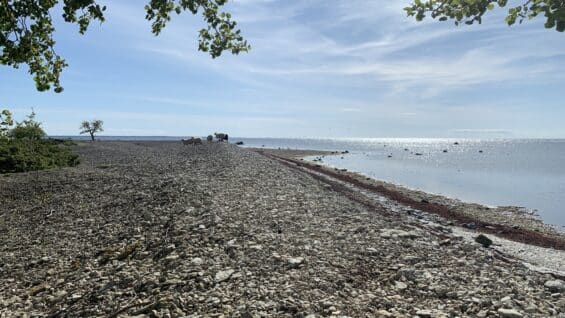Valorization of aquaculture by products for the production of ω-3 enriched fish oils
It is well known that marine oils are an excellent source of ω-3 long chain, polyunsaturated fatty acid (PUFA), including eicosapentaenoic acid (EPA) and docosahexaenoic acid (DHA). This particular class of PUFA is common in any marine organism, in particular PUFA are synthesised in microalgae and tend to accumulate significantly in fatty fish and in the oil extracted from these organisms and from their by-products.
In recent years there has been an exponential growth in the market of the ω-3 PUFA for human consumption, thanks to the numerous studies showing the significant beneficial effects determined by fish oil and ω-3 PUFA-rich functional foods daily consumption, in terms of dietetic anti-tumor and antithrombotic properties. In addition, demand for ω-3 PUFA fish oils for animal feeds, in particular for aquaculture, is also rapidly growing, in view of the recognized beneficial effects on growth performances, nutritional value, immune system of reared fish.
As the industrial production of fish oil is based on intensive fishing of fatty fish species belonging to scomberoides, gadidae, clupeidae etc., with a consequent depletion of wild fish stocks, it is important to identify new sources for the industrial production of PUFA-rich oils and ω-3 PUFA concentrates. The industries that process fish from fisheries and aquaculture produce a significant amount of by-products and wastes that can be an important resource of components with high nutritional value, such as ω-3 PUFA.
Utilisation of by-products from fisheries and aquaculture, according to the principles of circular economy, will turn “wastes to profit”, indicating a more sustainable business models and optimising the efficiency of aquatic resources utilisation. Companies, in fact, will have a direct economic return, from the commercialization of bio-products and an indirect return, resulting from the reduction of the quantity of waste to be sent to landfill. This last aspect will also allow a positive environmental impact by reducing the pressure on the environment of these productive activities.
The reduction of food loss and waste, as well as their valorization, is crucial to achieve the goal of “zero waste”. Considering that environmental sustainability is closely linked to economic sustainability, scientific and technical knowledge is essential to outline the road map of more sustainable business models and to optimise the efficiency of aquatic resources utilisation, according to the AGENDA 2030. In view to target the Sustainable Development Goal (SDG) n 14 of the United Nations Development Programme (UNDP), devoted to a proper utilisation of the“resources below the water”, and considering the pivotal role of aquaculture in satisfy the global demand for fish products, the contribution of this industry to the production of by-products must be properly managed at National and Regional level.
In the main Sicilian fish farm, wastes from processed fish are automatically collected, during the production cycle, stored and sent to landfill. The UniPa team has developed a pilot process for recovery and valorization of this waste, with the aim to turn “waste into profit” and contributing to increase the economic and environmental sustainability of aquaculture, as a paradigm of circular economy.
The team has set up a method to produce refined fish oil from raw fish oil by Short Path Distillation (SPD), a technique that enriches the ω-3 PUFA fraction, providing a fish oil that satisfies all the requirements for human consumption.
More details in the article, here.




